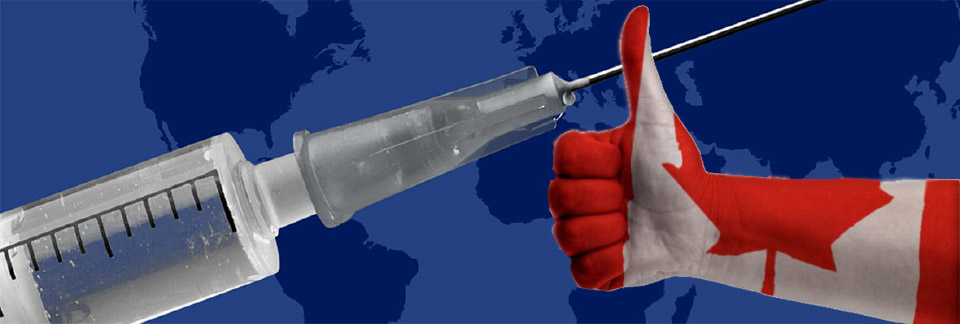Travellers on commercial airlines, interprovincial trains and cruise ships will be required to be vaccinated by the end of October, Ottawa said Friday. The measures will also require federal employees and workers in federally regulated industries such as airlines to be vaccinated against COVID-19.
There will be exceptions for those who cannot be vaccinated for medical reasons, or due to other protected grounds.
“This is an evolution of the government’s posture in protecting the health and safety of Canadians since the beginning of the pandemic,” said Dominic LeBlanc, president of the Privy Council, adding the move is necessary to protect against more dangerous variants of COVID-19 and will help the Canada recover more quickly from the pandemic.
“We have scientific data but also real-world evidence on how remarkably effective are the vaccines that have been approved for use by Health Canada,” he added.
Transport Minister Omar Alghabra said the government will require workers in federally regulated industries to be vaccinated no later than the end of October.
“Canadians don’t want to go back to lockdowns. Canadians don’t want to go back to travel restrictions. Canadians want to go back to normal as quickly as possible,” he said.
The government did not say what proof employees and travellers would have to provide in order to go to work or get on a plane.
The National Airlines Council of Canada, which represents the country’s largest air carriers, said it also welcomes a vaccine mandate, though it’s seeking more information about what will be required of the companies.
Air Canada said its supports measures that require its employees to be vaccinated, calling it “a welcome step forward,” and noting that it has continuously urged its workers to do so.
WestJet similarly welcomed the announcement with company executive VP Mark Porter stating, “Vaccinations are the most effective way to ensure the safety of our guests and employees, while curbing the spread of COVID-19.”
At last count, nearly 82% of Canadians 12 and older had at least one dose of vaccine, while 70% had been fully vaccinated.
Vaccine certificate
Meanwhile, as Ottawa was revealing its plans, the travel industry was exhibiting mixed emotions on the government’s announcement earlier in the week that fully vaccinated Canadians will soon be able to get a government document that will certify their COVID-19 vaccine history for the purpose of international travel. The document, expected to be ready by the fall, will be digital, with an option for those who can’t have or don’t want a digital certificate.
Industry associations and travel agencies say they’re pleased to see a vaccine verification document being implemented for international travel, though some say they’re upset at the lack of a clear timeline for its introduction.
Tripcentral.ca CEO president and CEO Richard Vanderlubbe said such a certificate for Canadian travellers will eventually help spur international travel, but it won’t help travel agencies until there’s more information around when it’ll be introduced.
“Today they’re talking about something that doesn’t exist yet that is still to be developed, and that creates uncertainty, because when is it going to be ready? When is it going to be required?” said Vanderlubbe, who added he hopes that Ottawa and the provincial governments will be able to work together to introduce passports by their “early fall” target.
“Even musing about it is a problem because it creates new uncertainty and people will now be saying I want to wait until this is all sorted out.”
Allison Wallace, a spokeswoman for Flight Centre, said proof of vaccine will make the border experience easier for Canadians in foreign countries, since a digital document will be easier to deal with than a paper slip from a province.
“We already have a lot of demand coming in, but what happens is we get questions and inquiries,” around what barriers there are to travel, Wallace said. “So, the people who are sitting on the fence, it’ll help get them to book rather than be in the wait and see mode.”
The Canadian Airports Council, which represents airports big and small across the country, also said it’s pleased to see the development and hopes it’ll help the resumption of international flights at smaller airports.
“Airports have been encouraging government to take this necessary action for months,” said Chris Phelan, VP government and industry affairs at the CAC.
“We trust that this will help simplify the resumption of international flights at the 70 other small and medium sized airport across the country that have Canada Border Services Agency stations to handle international flights.”

